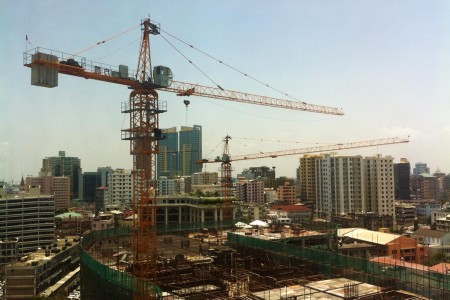
Tanzania’s economy is much larger than previously thought: by about 30 percent. But that doesn’t mean there aren’t any challenges. Photo: Daniel Hayduk
After a two week mission, the International Monetary Fund (IMF) says Tanzania’s economy is much larger than previously thought, however implementing budgets will be a challenge.
“The revised national accounts, which incorporate recent surveys and methodological improvements, suggest that the size of Tanzania’s economy is about 30 percent bigger than earlier thought,” says Herve Joly, who led the IMF team.
But Joly says implementation of the budget this fiscal year will be a challenge because of delays in budget financing and ‘substantial’ revenue shortfall.
Only a quarter of over $550 million US Dollars in budgetary support for this fiscal year has been released by donors, after a high-level corruption scandal rocked the country’s energy sector.
“These pressures … require urgent alignment of expenditure with available resources. To avoid further accumulation of expenditure arrears, it will be important to strengthen the expenditure commitment controls,” says Joly.
“It is essential for preserving fiscal policy credibility that the budget for 2015 and 2016 be based on realistic revenue and financing assumptions.”
Joly says recent macroeconomic developments have continued to be favorable to Tanzania.
“Growth is estimated to have been slightly over seven percent in 2014, while inflation has dropped below the authorities’ target of five percent.”
The shilling’s exchange rate against the US dollar has depreciated, mostly because the US dollar has strengthened relative to most other currencies, says Joly.
“The gradual depreciation contributes to maintaining the competitiveness of Tanzania’s exports and benefits farmers and other exporters. Meanwhile the recent decline in international oil prices has contained the impact of the exchange rate depreciation on import costs.”
Recent international oil price decline will provide a boost to the economy in 2015 and help contain inflation, he says.
